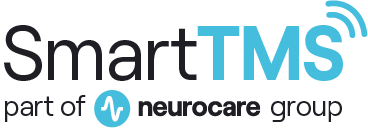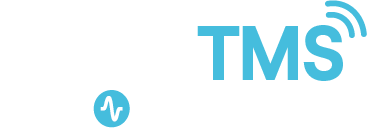Frequently asked questions
TMS expert answers - Transcranial Magnetic Stimulation treatment FAQ.
We know that Transcranial Magnetic Stimulation (TMS) might be new to you, and trying something unfamiliar can feel overwhelming.
Our patient advisors have compiled a list of frequently asked questions. If you don't find your question here, please contact the team. They are eager to assist you with any inquiries about the treatment.
-
Transcranial Magnetic Stimulation (TMS) is a non-invasive treatment that uses strong magnetic pulses to stimulate the brain, helping to address various mental health conditions.
-
The treatment coil generates a precise magnetic pulse that targets specific brain areas related to the medical condition. This pulse creates small electrical currents that either stimulate or calm brain activity. This process reactivates neural pathways, leading to changes in brain function.
-
TMS is a proven safe procedure, backed by over 30 years of clinical and scientific research. Most patients experience no significant side effects.
-
You might feel a tapping on your scalp, but most people adjust to it quickly. Your practitioner will only increase the treatment's intensity once you're comfortable with the magnetic pulses. Some patients experience facial twitching during TMS, but this is harmless and will stop once the session ends.
-
You might feel a little discomfort at first, but it quickly fades as you adjust. During your first session, the TMS treatment is tailored specifically for you. Your Smart TMS practitioner will start with a lower intensity and gradually increase it to your comfort level.
-
Your first session will last one hour, including an introduction to TMS and necessary measurements by your Smart TMS practitioner. Subsequent sessions will be 30 minutes each.
-
After an assessment with our clinicians, we'll determine the number of sessions you need based on your specific condition. Typically, around 30 sessions are recommended, with 1 to 3 sessions scheduled each day.
-
During the treatment, you can relax in a comfortable chair. While your head remains still, you can read or listen to music to unwind.
-
Side effects are usually mild, improving soon after each session and lessening with more sessions. They may include:
- Headache
- Scalp discomfort at the site of stimulation
- Twitching of scalp/face muscles
- Tiredness
The chance of having a seizure is about 1 in 50,000 treatment sessions, similar to the risk with antidepressants. To reduce this risk, we screen patients for any medical issues before starting treatment. If you experience any side effects, your Smart TMS practitioner will be available to pause or adjust the treatment for your comfort.
-
Most patients feel perfectly fine and can continue their day as usual. Occasionally, one in ten may experience a mild headache, which can be easily managed with standard painkillers. Some might feel a bit tired, especially if they have multiple sessions in one day.
-
Your practitioner will stay in the room throughout your treatment to make sure you’re comfortable and the treatment is running smoothly. Our practitioners are happy to chat or to sit quietly if you prefer to relax completely. Some patients even fall asleep during their treatment.
-
At Smart TMS, we believe our patients deserve the best value for money, without reducing the levels of personal, caring service. As a result we treat anxiety and depression within the same treatment session. Anxiety and depression tend to see patients entering a vicious cycle of low mood and worry or fear, so our clinicians prescribe TMS treatment for both, if the patient’s symptoms suggest this would be beneficial. We do this at no extra cost to the patient, unlike other TMS providers.
When other conditions are suffered together, our Clinician will use the assessment to determine which is the primary condition. In some cases, patients find treatment for one condition lessens the symptoms of another condition. For example, depression and insomnia may be suffered at the same time and by treating the depressive symptoms, the patient may be able to sleep more soundly, therefore removing the need for insomnia to be treated.
-
The cost of treatment will depend on the condition being treated, as this determines how many sessions are required. For more information on pricing, please see: TMS Treatment Pricing
-
We have partnered with a specialist company who offer finance subject to criteria. Please see finance for more information.
-
Currently, there are very few NHS Foundation Trusts that offer TMS as a treatment for depression – and those that do tend to have long waiting lists. The treatment is only offered free of charge to a select number of patients who meet strict criteria – including living in the catchment area covered by the NHS Trust.
See NHS Funding for more information.
At Smart TMS, we want to help as many people as we can to achieve an improved quality of life through TMS treatment. We can provide guidance to patients on gaining funding from their NHS trust, so please contact the team if you would like advice.
-
Many private medical insurance companies are now considering covering the cost of treatment on a case by case basis. If you have private health insurance and you believe it may cover TMS treatment, please get in touch with our team and we can help with booking your treatment and processing your claim. If you are covered by another insurer or unsure as to the position, we recommend calling your insurer in the first instance, to see whether they will cover the cost of your treatment.
Please see Private Health Insurance for the latest information on insurers.
-
Following our most recent audit, 65% of patients saw a clinically significant reduction in symptoms, while 46% of patients entered full remission following a full course of treatment.
-
Of all patients treated for OCD by Smart TMS, 30% of patients entered remission, meaning that they no longer suffer from clinical OCD at all.
-
We currently treat:
-
Methamphetamine addiction
We have also seen positive results in patients who have gained relief from their addictions to gambling, pornography, sex and social media addictions while being treated for other conditions.
-
According to our most recent audit (April 2023), 88% of patients will see a significant reduction in their cravings, and 35% of patients will completely abolish their addiction cravings.
-
While both rTMS and Electroconvulsive Therapy (ECT) are effective in the treatment of depression, there are many differences in safety and tolerability. Both are designed to treat depression through the application of energy into the brain, but the similarities end there. ECT is a more intensive and invasive procedure than is rTMS as ECT requires an anaesthetic and is designed to stimulate a controlled seizure.
The main side effect from ECT is memory loss which does not occur with rTMS. By contrast, rTMS is an outpatient procedure with few side-effects. See TMS vs. ECT for more information
-
TMS Therapy is a very well tolerated treatment and there are very few limitations as to who can receive it. However, not all patients are appropriate candidates for TMS therapy. Patients who have ferromagnetic metal implants in their head/neck or a cochlear implant aren’t appropriate candidates for TMS. A Smart TMS clinician will confirm your suitability prior to writing your TMS prescription.
-
You can continue your sessions as normal, and should carry on taking any medication prescribed by your GP or psychiatrist throughout your TMS treatment. Alhough you can refer yourself for TMS, we’ll ask for your permission to tell your GP or psychiatrist about your treatment with us, as being kept informed helps them give you the best possible care.
-
When your treatment comes to an end, your Smart TMS clinician will arrange a review to talk about your progress. Where your symptoms have reduced, he or she will explain our aftercare programme – Continuous Care – and advise you on the best way to maintain your great results. Your clinician will also share your results with your GP (with your permission).
-
Most people are suitable to receive TMS treatment. Try our quick 2 minute questionnaire to see whether TMS treatment could help. TMS Suitability Self-Check
-
Before you can start treatment, there are two stages that need to be completed:
- Completion of your pre-assessment questionnaire. This gives us the information we need on your medical history and symptoms before your assessment with one of our clinicians;
- Our clinician will talk through your medical history and symptoms before arriving at a diagnosis and confirming your suitability for TMS treatment. A prescription for TMS will be written.
To arrange to start this process, please contact us on 0345 222 5678 or submit an enquiry and one of our patient advisors will contact you.
-
rTMS stands for repetitive Transcranial Magnetic Stimulation and is synonymous with 'TMS' Transcranial Magnetic Sitmulation (it is just a more detailed description. So rTMS is the type of treatment Smart TMS offer.
dTMS stands for deep Transcranial Magnetic Stimulation, which is a term used to describe repetitive TMS using a different coil which penetrates deeper into a much larger area of the brain than rTMS. Repetitive TMS is focused on the precise area of the brain shown in research to cause mental health conditions.What is the main difference between rTMS and dTMS?
The “magnet” used in TMS is called a coil. The coil used in each type of TMS is different, with rTMS using a coil that is shaped like a figure of 8 and is placed on the scalp. dTMS uses a H-coil, which looks like a helmet and covers the whole head. rTMS sends magnetic pulses 2-3cm into the brain in a precise area, whereas dTMS sends pulses to a depth of 5-6cm in a much less specific and focused area.Are the results of treatment the same for both rTMS and dTMS?
Current studies show the remission rate to be 60% when rTMS is used and 40% when dTMS is used.Is the evidence base the same for rTMS and dTMS?
rTMS is very widely used by the best researchers around the world and so there is a robust evidence base for the safety and efficacy. dTMS is much less widely used and so there is less evidence.Are the side effects the same for rTMS and dTMS?
Both treatments have very mild side effects – headache, scalp irritation etc. The biggest difference in side effects is the risk of seizure – rTMS has a 1 in 50,000 risk, whereas the risk is 1 in 12,500 when using dTMS, nearly three times higher.
Not sure if TMS is right for you?






